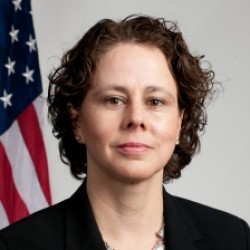Health Reform, Preventive Services, and Religious Institutions
Health Reform, Preventive Services, and Religious Institutions
Thanks to the Affordable Care Act, most health insurance plans will cover women’s preventive services, including contraception, without charging a co-pay or deductible beginning in August, 2012. This new law will save money for millions of Americans. But more importantly, it will ensure Americans nationwide get the high-quality care they need to stay healthy. Under this policy, women who want contraception will have access to it through their insurance without paying a co-pay or deductible. But no one will be forced to buy or use contraception.
On January 20th, Secretary Sebelius announced that certain religious organizations including churches would be exempt from paying their insurers to cover contraception. Other religious organizations, including those that employ people of different faiths, can qualify for a one-year transition period as they prepare to comply with the new law. In recent days, there has been some confusion about how this policy affects religious institutions. We want to make sure you have the facts:
- Churches are exempt from the new rules: Churches and other houses of worship will be exempt from the requirement to offer insurance that covers contraception.
- No individual health care provider will be forced to prescribe contraception: The President and this Administration have previously and continue to express strong support for existing conscience protections. For example, no Catholic doctor is forced to write a prescription for contraception.
- No individual will be forced to buy or use contraception: This rule only applies to what insurance companies cover. Under this policy, women who want contraception will have access to it through their insurance without paying a co-pay or deductible. But no one will be forced to buy or use contraception.
- Drugs that cause abortion are not covered by this policy: Drugs like RU486 are not covered by this policy, and nothing about this policy changes the President’s firm commitment to maintaining strict limitations on Federal funding for abortions. No Federal tax dollars are used for elective abortions.
- Over half of Americans already live in the 28 States that require insurance companies cover contraception: Several of these States like North Carolina, New York, and California have identical religious employer exemptions. Some States like Colorado, Georgia and Wisconsin have no exemption at all.
- Contraception is used by most women: According to a study by the Guttmacher Institute, most women, including 98 percent of Catholic women, have used contraception.
- Contraception coverage reduces costs: While the monthly cost of contraception for women ranges from $30 to $50, insurers and experts agree that savings more than offset the cost. The National Business Group on Health estimated that it would cost employers 15 to 17 percent more not to provide contraceptive coverage than to provide such coverage, after accounting for both the direct medical costs of potentially unintended and unhealthy pregnancy and indirect costs such as employee absence and reduced productivity.
The Obama Administration is committed to both respecting religious beliefs and increasing access to important preventive services. And as we move forward, our strong partnerships with religious organizations will continue. The Administration has provided substantial resources to Catholic organizations over the past three years, in addition to numerous non-financial partnerships to promote healthy communities and serve the common good. This work includes partnerships with Catholic social service agencies on local responsible fatherhood programs and international anti-hunger/food assistance programs. We look forward to continuing this important work.
By Cecilia Muñoz
Director of the White House Domestic Policy Council.
###
Director of the White House Domestic Policy Council.
Cecilia Muñoz is the Director of the Domestic Policy Council, which coordinates the domestic policy-making process in the White House.
Prior to this role, she served as Deputy Assistant to the President and Director of Intergovernmental Affairs where she oversaw the Obama Administration’s relationships with state and local governments.
Before joining the Obama Administration, Cecilia served as Senior Vice President for the Office of Research, Advocacy, and Legislation at the National Council of La Raza (NCLR), the nation’s largest Latino civil rights organization. She supervised NCLR’s policy staff covering a variety of issues of importance to Latinos, including civil rights, employment, poverty, farmworker issues, education, health, housing, and immigration. Her particular area of expertise is immigration policy, which she covered at NCLR for twenty years.
Ms. Muñoz has testified numerous times before Congress and appears regularly in the Spanish- and English-language media. Her media credits include the Today Show, Good Morning America, The NewsHour with Jim Lehrer, Dateline NBC, O’Reilly Factor, CNN’s Situation Room, and National Public Radio.
Ms. Muñoz is the former Chair of the Board of Center for Community Change, and served on the U.S. Programs Board of the Open Society Institute and the Board of Directors of the Atlantic Philanthropies and the National Immigration Forum.
Ms. Muñoz is the daughter of immigrants from Bolivia and was born in Detroit, Michigan. She received her undergraduate degree from the University of Michigan in Ann Arbor and her master’s degree from the University of California at Berkeley. In June 2000, she was awarded a MacArthur Foundation fellowship in recognition of her work on immigration and civil rights. In 2007, she served as the Towsley Foundation Policymaker in Residence at the Gerald R. Ford School of Public Policy at the University of Michigan. She has received numerous other awards and recognitions from various sources, including the Congressional Black Caucus Foundation, and a variety of local non-profit organizations.
_________________________________________________________________
The White House
* The above story is adapted from materials provided by The White House




















